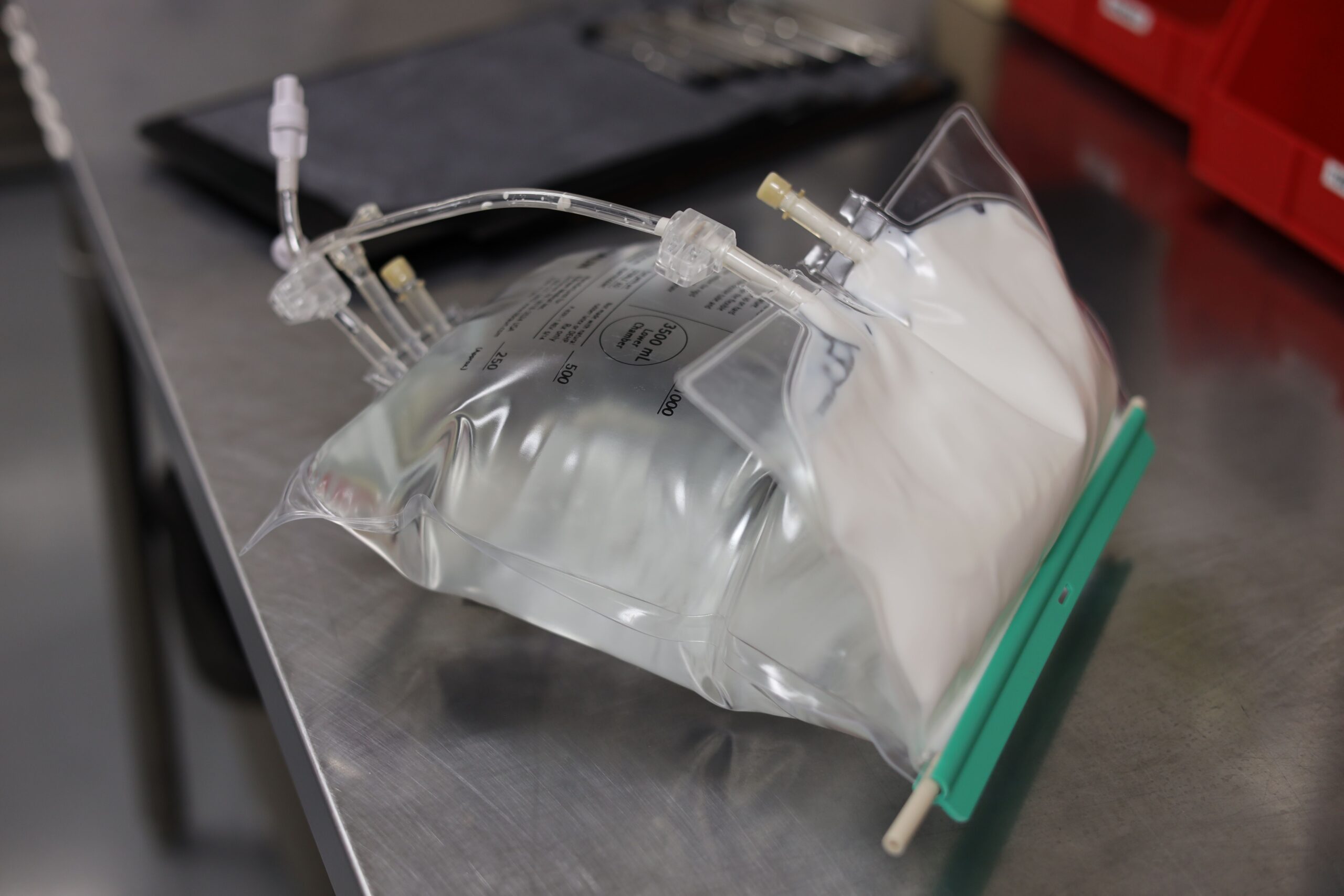
You’ve just been diagnosed…
Key questions every home TPN patient should ask their doctor.
Do I Qualify?
Get Beginner’s Guide to Home TPN
Patients
Caregivers
Patient Families
It Never Hurts to Ask
There is no better advocate for your care than yourself. We’ve compiled a list of questions you should ask your doctor if you are on long-term home TPN:
We’ve compiled a list of questions you should ask your doctor if you are on long-term home home TPN:
Is there a way to make my gastrointestinal system function so that I don’t need home TPN, or need less home TPN?
There is a great amount of variation when it comes to a home TPN patient’s gastrointestinal function and nutritional needs. Every patient is unique. Complications in the gastrointestinal system can present in a number of ways including nausea, vomiting, abdominal pain, distention, diarrhea, obstruction, maldigestion and malabsorption. Many of these things are the result of Short Bowel Syndrome (shortened intestine) or other conditions where the intestines have been damaged (surgery or an accident).
Since a patient’s digestive process is responsible for one’s overall nutrition, it is critical to monitor patients with gastrointestinal issues carefully. When food moves too quickly through a shortened intestine, the nutrients from food are unable to be broken down and absorbed in the intestinal wall and IV nutrition, or TPN, may be required.
Regardless of whatever intestinal challenge you may be facing, not all home TPN patients remain on home TPN forever. Some patients, in many cases children, may be on home TPN short term as their body continues to grow and recover. Other home TPN patients may require the therapy for life. Either way home TPN is not something to be feared. Knowing when you will be able to stop or reduce home TPN is something that should be decided by the medical doctor overseeing your care.
While you are on home TPN, your Nutrishare clinician will work closely with you and your doctor — monitoring your labs to ensure that all your nutritional needs are being met. If there is a change in your labs, they will notify your doctor and make recommendations about your specific care needs. No matter the course of treatment, you are never alone in your home TPN journey with 1-on-1 support from your Nutrishare clinician.
What vitamin and mineral deficiencies am I at risk for developing?
Since every home TPN case is different, knowing what vitamin and mineral deficiencies you are at risk for developing depends on which part of your gastrointestinal tract is missing and how well other organs, such as the pancreas and liver, are functioning. In most short bowel syndrome cases, fat-soluble vitamins – Vitamins A, D, E, and K, along with B12, magnesium, and potassium deficiencies are the most common. Iron deficiency is also common in home TPN patients because iron is not routinely added to home TPN formulations in the United States because of the risk of anaphylaxis and concerns about incompatibilities. When in doubt, always discuss your concerns with your clinical care provider or your primary physician, who will be closely monitoring your labs and making necessary adjustments to your home TPN formulation.
How often should I be getting labs done to make sure I’m not developing nutritional deficiencies or toxicities?
Knowing the proper frequency for lab work to ensure you are receiving adequate nutrition and not at risk for toxicity depends on how dependent you are on home TPN versus receiving nutrition through oral or tube feedings. On average, subject to your unique circumstances, most home TPN patients following the following lab frequency schedule:
-
MONTHLY: CBC, CMP, magnesium, phosphorus, INR, CRP, pre-albumin, triglycerides
-
EVERY 3-6 MONTHS: Iron indices, zinc, selenium, copper, carnitine (pediatric patients)
-
EVERY 6-12 MONTHS: Vitamin B12, folate, vitamin A, vitamin E, 25-OH vitamin D, vitamin C, chromium, manganese
-
ANNUAL: PTH, TSH, full lipid profile; 24-hour urine sodium, creatinine, calcium
What are the possible long-term effects of home TPN on my body?
Long-term effects of home TPN can be directly caused by home TPN, the result of underlying gastrointestinal disease, lack of nutrient exposure to the gut, fluctuations in hydration/electrolytes, or issues with maintaining IV access. Some patients experience nutritional challenges such as over/under nutrition, vitamin/mineral deficiencies or toxicities. Others may experience liver and kidney issues such as elevated liver enzymes or low glomerular filtration rate (GFR) of the kidneys. Metabolic bone diseases such as osteoporosis and osteopenia have also been reported. Due to the delicate nature of a patient’s central catheter and IV access, line infections and blood clots are another long term challenge for home TPN patients. Understanding your unique home TPN situation, knowing what to look out for and being your own advocate for your health is key to preventing many of these things. If you have questions, be sure to discuss them with your clinical care provider.
How can I reduce my chance of developing long-term complications related to home TPN?
The best way to reduce your chance of developing long-term complications related to home TPN is to understand all of the possible risks and take a proactive approach to managing your own care. Your clinical care provider can help you with the following tests and lifestyle changes:
TPN Associated Liver Disease (fatty liver, impaired liver function, and/or gallbladder/bile flow problems)
-
Diagnostic test: elevated liver enzymes
-
Management: Avoidance of infections, optimize the use of oral/enteral nutrition, and/or changes in your home TPN formula
Chronic Renal Injury (fluctuations in hydration or dehydration, kidney stones)
-
Diagnostic test: low glomerular filtration rate (GFR or eGFR), monitor your urine output periodically (>1L urine/24 hours)
-
Management: Maintain adequate hydration and acid/base status which is managed through a combination of diet/lifestyle, medications, and changes in your home TPN formula
Central Line Infections (difficulty in sterile technique, from an infection somewhere else in the body, or from movement of bacteria/fungi across the intestinal wall into the bloodstream)
-
Diagnostic test: blood cultures, taken from the line & also from a peripheral vein (skin poke)
-
Management: Meticulous central line care, prompt management of infections with antibiotics, may require antibiotic or ethanol treatment of line
Central Line Blood Clots and IV Access (imbalance in blood clotting/clot breakdown proteins, type of catheter)
-
Diagnostic test: ultrasound or scan showing a blood clot
Home TPN Blog
Elevate Your Quality of Life
with Nutrishare Home TPN
Call us at 1-800-466-3876 to learn more about Nutrishare home infusion therapy.
Do I Qualify?



